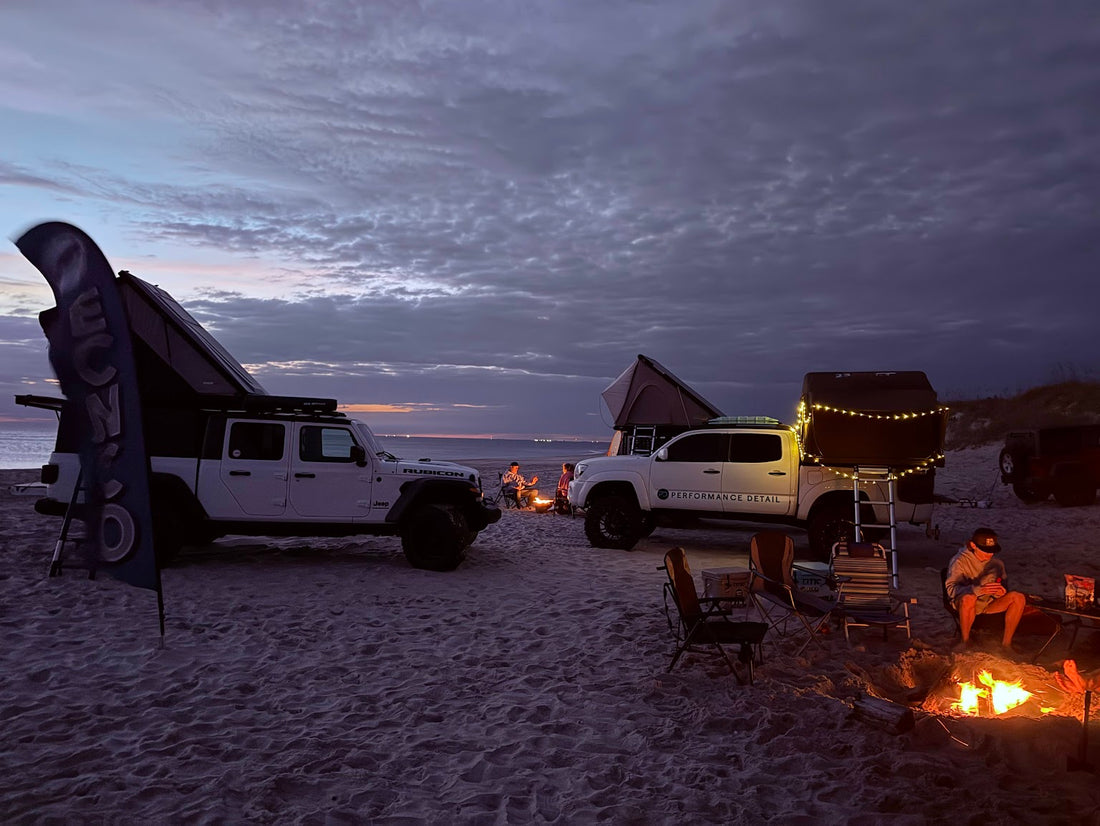
Sustainable Adventure: Exploring Responsibly
The Beach Edition
Beach overlanding offers a unique opportunity to explore stunning coastal landscapes. However, it's essential to tread lightly to protect these fragile ecosystems. Here are some tips to minimize your impact:
Vehicle Use
- Stick to designated access points: Avoid driving on dunes or fragile vegetation.
- Destruction of Vegetation: Dune grasses and other vegetation stabilize the sand and prevent erosion. Vehicle traffic can crush these plants, leaving the dunes vulnerable to wind and water.
- Erosion: Tire tracks can accelerate erosion, leading to the loss of valuable dune habitat. As the dunes erode, they become less effective at protecting coastal areas.
- Disruption of Wildlife: Many animals, including sea turtles, shorebirds, and other wildlife, rely on dunes for nesting, feeding, and shelter. Vehicle traffic can disturb these animals, disrupt their breeding cycles, and damage their habitat.
By sticking to designated access points, we can help preserve these vital ecosystems and ensure that future generations can continue to enjoy their beauty.
- Minimize tire pressure: Reduce tire pressure to improve traction and reduce impact on the sand.
- Reduced Ground Pressure: When tire pressure is lowered, the vehicle's weight is distributed over a larger surface area. This reduced ground pressure minimizes the risk of tire tracks, which can damage sensitive vegetation and disrupt the natural flow of sand.
- Preservation of Dune Ecosystems: Dune ecosystems are vital for coastal protection, filtering water and providing habitat for various species. Lowering tire pressure helps to prevent the destruction of dune grasses and other vegetation that stabilize the sand.
- Protection of Marine Life: Minimizing tire pressure can help reduce the risk of disturbing marine life, such as nesting sea turtles and shorebirds. Tire tracks can disrupt nesting sites and hinder the movement of these animals.
- Avoid sensitive areas: Stay away from nesting areas, dune grasses, and intertidal zones.
Camping
- Camp on durable surfaces: Avoid pitching tents on dunes or near vegetation.
- Pack out all trash: Remove all trash, including food scraps and human waste.
Leaving trash on the beach, even small items, can have significant negative impacts on the environment:
- Marine Debris: Trash can end up in the ocean, harming marine life. Animals may mistake it for food, leading to ingestion or entanglement.
- Beach Pollution: Litter spoils the beauty of our beaches and can deter visitors. It can also create health hazards for beachgoers.
- Ecosystem Disruption: Trash can disrupt delicate coastal ecosystems, harming plants and animals that rely on clean environments.
- Promoting Responsible Behavior: By packing out all trash, you set a positive example and encourage others to do the same.
Remember, every piece of trash left behind can have a lasting impact. Let's work together to keep our beaches clean and beautiful for generations to come.
- Minimize campfire impact: Use existing fire pits and extinguish fires completely.
- Dispose of wastewater responsibly: Use designated disposal sites or pack out wastewater.
Marine Life
- Observe marine life from a distance: Avoid disturbing marine animals and their habitats.
- Practice responsible snorkeling and diving: Be mindful of your impact on coral reefs and other underwater ecosystems.
- Avoid touching or feeding marine life: This can disrupt their natural behavior and harm them.
- Use reef-safe sunscreen: Choose sunscreen that is free of harmful chemicals that can damage coral reefs.
Beach Etiquette
- Respect other beachgoers: Be mindful of others and avoid loud noise or disruptive behavior.
- Clean up after your pets: Dispose of pet waste properly.
By following these guidelines, you can help protect our precious coastal ecosystems and ensure that future generations can enjoy the beauty of the beach. Remember, every small action counts.